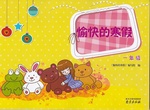题目内容
“Old wives’ tales” are beliefs passed down from one generation to another. For example,most of us remember our parents’ telling us to eat more of certain foods or not to do certain things. Is there any truth in these teachings? Some of them agree with present medical thinking,but others have not passed the test of time.
Did your mother ever tell you to eat your carrots because they are good for your eyes? Scientists now report that eating carrots can help prevent a serious eye disease called macular degeneration. Eating just one carrot a day can reduce the possibility of getting this disease by 40%. Garlic is good for you,too. It can kill the type of virus that causes colds.
Unfortunately, not all of Mom’s advice passed the test of medical studies. For example, generations of children have been told not to go swimming within an hour after eating. But research suggests that there is no danger in doing so. Do sweets cause tooth problems?Well, yes and no. Sticky sweets made with grains(谷物) tend to cause more problems than sweets made with simple sugars.
Even though science can tell us that some of our traditional beliefs don’t hold_water,_there is still a lot of truth in the old wives’ tales. After all, much of this knowledge has been accumulated (积累) from thousands of years of experience in family health care. We should respect this body of knowledge even as we search for clear scientific support to prove it true or false.
1.Which of the following is TRUE according to the text?
A. Sticky sweets are damaging to our teeth.
B. Eating garlic is good for our eyes.
C. Swimming after a meal is dangerous.
D. Carrots prevent people from catching colds.
2.The author develops the third paragraph mainly________.
A. by cause and effect
B. by order in space
C. by examples
D. by order in time
3.The phrase“ hold water” in the last paragraph most probably means“________”.
A. to be valuable
B. to be believable
C. to be admirable
D. to be suitable
4.What is the author’s attitude towards“old wives’ tales”in the text?
A. Subjective(主观的).
B. Objective(客观的).
C. Dissatisfied.
D. Curious.
 愉快的寒假南京出版社系列答案
愉快的寒假南京出版社系列答案
